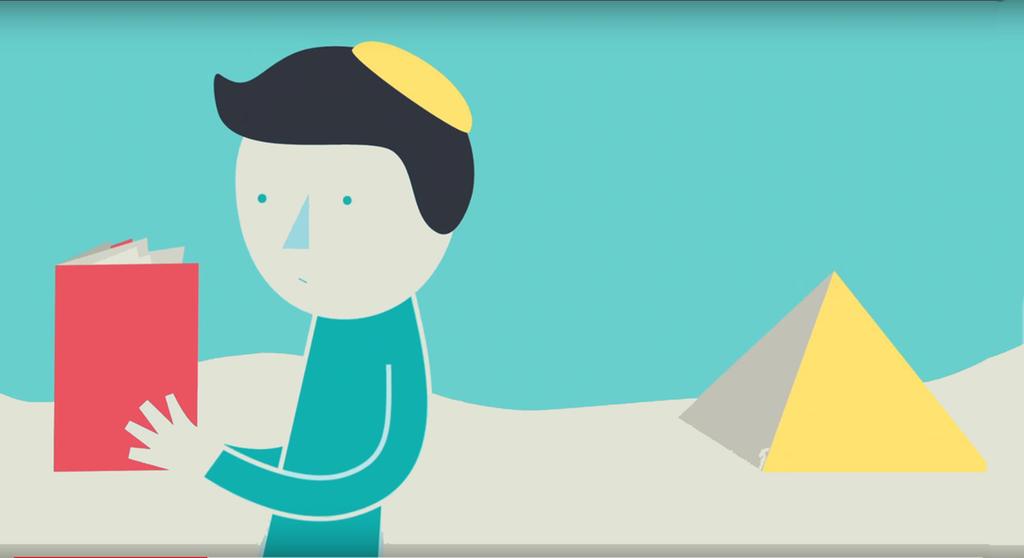אמת ויציב/Emet V’yatziv [“true and enduring”], the blessing following the Shema is very ancient. According to Mishna Tamid 5.1, this prayer – or at least the kernel that developed into our version – was part of the very brief liturgy the priests recited each morning during Temple times, long before our prayer book evolved. The Talmud [Berakhot 21b] floats a suggestion that this blessing is a biblical requirement, even more important than the Shema itself. While this is hyperbole, not a legal ruling, it does convey the enormous importance Jewish tradition placed on this text.
What’s so significant about it? Along with the third paragraph of the Shema, אמת ויציב/Emet V’yatziv is one of the principle liturgies for remembering the Exodus from Egypt. Over and over, the Torah commands us לְמַ֣עַן תִּזְכֹּ֗ר אֶת־י֤וֹם צֵֽאתְךָ֙ מֵאֶ֣רֶץ מִצְרַ֔יִם כֹּ֖ל יְמֵ֥י חַיֶּֽיךָ Remember the day you left Egypt all the days of your life [e.g. Deuteronomy 16.3]. The Torah applies this command as an ethical exhortation: be honest in business, love the stranger, pay your workers fairly, let them rest on Shabbat, liberate indentured debt-servants after six years … all because we retain our mythic memory of ancient enslavement. Also, the obligation to remember Egyptian exodus is portrayed as a joyful, delighted, grateful celebration of people who feel divine care, as God Hashem leads us through our trials. Moreover, remembering Egypt cultivates within us the optimistic affirmation that – in this often-oppressive world – sometimes, against all odds, slaves go free. Saying Emet V’yatziv each morning helps awaken our consciousness to these demands and dreams.
What belongs in the prayer? The Sages [Jerusalem Talmud Berakhot 11 b, Tosefta Berakhot 2.1; Exodus Rabbah 22.3] record several views: one must mention the exodus itself. R. Judah HaNassi says one must mention God’s majesty. A group of “others” say one must mention the splitting of the Red Sea and the plague of the first born. R. Joshua b. Levi says one must mention all these themes, and address God as צור ישראל וגואלו/Tzur Israel v’Goalo “Rock of Israel and its redeemer.” This last phrase might demand the use of this particular divine address, or may refer to a given prayer text, perhaps a version of the paragraph that ends this blessing today: Tzur Israel, kuma b’ezrat Israel. [I would hazard a guess – not more – that R. Joshua b. Levi’s teaching influenced the contemporary “Prayer for the State of Israel,” composed in 1948 by Chief Rabbi Isaac HaLevi Herzog, with an assist from Shai Agnon. Tzur Israel v’Goalo is not a common rabbinic locution. I am guessing R. Herzog used this phrase to call to mind an ancient miracle when celebrating a modern one.]
And in fact, each of these elements the Talmud prescribes do appear in our prayer book today: “You rescued us from Egypt; You redeemed us from the house of bondage. All their first born You killed; Your first-born You rescued. You split the sea; You drowned the sinners; You brought the dear ones across. The water covered their enemies until not one was left.”
Myself, I omit most of these lines each day. I say ממצרים גאלתני מבית עבדים פדיתנו/mi’Mitzrayim ge’altanu, mi’beit avadim peditanu: “You rescued us from Egypt; You redeemed us from the house of bondage,” and leave it at that. I feel too vicious and triumphalist when I sing about the ever-loving God killing children and drowning the Egyptians. Regular daveners should feel empowered to tweak the liturgy as they go along. Don’t change too much: If there were no common liturgy, Jews wouldn’t share a prayer tradition across time and place. And some things – especially Bible quotes and the Barukh Atah formulas – really cannot be altered. But I encourage regular daveners to riff on their prayers a little: linger over the lines you love and skip some of those you don’t.
Perhaps [?] the Midrash [Exodus Rabbah 22.3] shares my discomfort with the bloody quality to this section of the prayer. After teaching the requirements for including each of the aforementioned elements in Emet V’yatziv, the Midrash recounts the wondrous faith the Israelites attained at the Sea. Crossing to safety, they purified their hearts and the Shekhinah or divine presence, rested upon them, enabling them to offer “pure prayer.” As a proof text, the Midrash cites Job 16.17: There is no violence [חמס] in my hand, and my prayer is pure. This means, it says, that “those who pray with hands soiled by violence, their prayer is not answered.” The passage goes on to hope that Jews who pray aspire to be [Psalm 24] נקי כפים ובר לבב/naki kappayim u’var levav, “of clean hands and pure heart.” Amen to that. Now there is a “true and enduring” technique, אמת ויציב, for remembering the exodus from Egypt, for absorbing its hopeful message and accepting its ethical implications.





